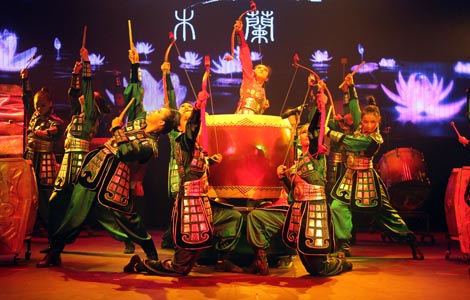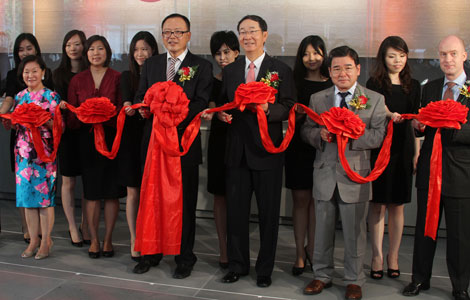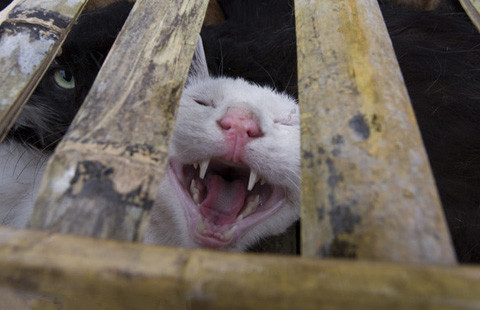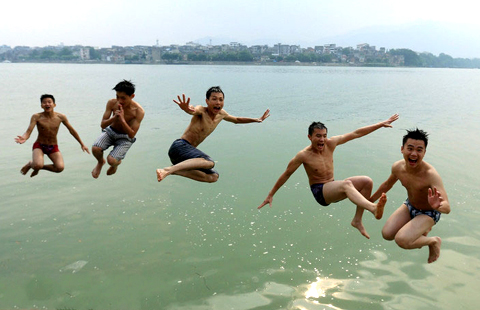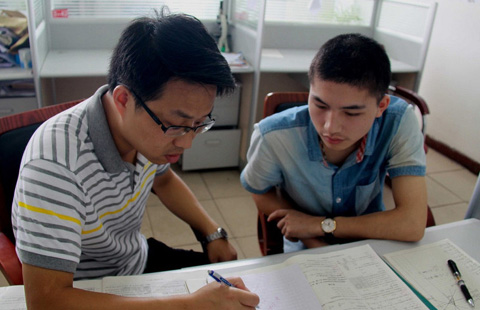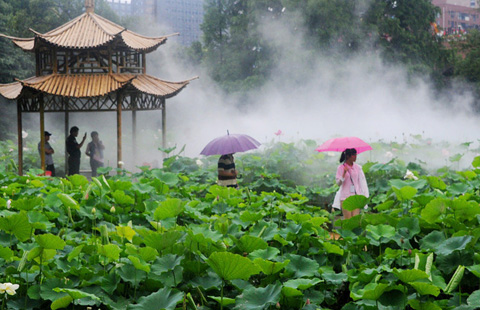Battle against the enemy within
Updated: 2014-07-03 07:41
By Du Zhizhou (China Daily USA)
|
||||||||
Efforts need to be made to increase transparency in the military to help eliminate corruption and ensure its fighting capabilities
It was announced on Monday that Xu Caihou, the former vice-chairman of China's Central Military Commission, had been expelled from the Communist Party of China for corruption following an investigation of three and a half months.
Military force is the security guarantee of the nation and its integrity is of special meaning to both the government and the people. However, the army does not exist in vacuum, it is composed of people, meaning it cannot be immune to corruption, and especially with the coming of the monied era, the People's Liberation Army has suffered from corruption, with many corruption cases involving military officers. So it is necessary to ensure the anti-corruption fight includes the PLA as well.
A capable army in the modern era needs modern equipment and logistic supplies, but more importantly, its senior officers must have the trust of the lower ranks in order to implement its missions. Corruption deals a fatal blow to that - nothing hurts more to the hearts of those tasked with defending the country than seeing their livelihoods being put into the pockets of their superiors or that every promotion and opportunity comes at a price.
It should also be noted that while corruption is more prevalent in peaceful times when the role of the military is not so evident, it can undermine the military's capabilities in times of war. There have been enough times in Chinese history, where armies with equal, or even better, equipment were defeated by their opponents because they were weakened by corruption, the price for that being the end of dynasties.
While the unquestioning obedience of the lower ranks to higher ones, which is essential in the armed forces, offers space for corruption, it also make it more efficient in fighting it. The army does not have too many complicated procedures, so it can more conveniently put corrupt officers on trial. The fact that the investigation into Xu's misdeeds was completed in three and a half months shows how efficient and strict the army can be in fighting corruption.
Xu's case shows that the leadership is determined to root out corruption in the military. This will be long and difficult task.
First, they need to be firm in dealing with anyone who is found to be corrupt, no matter how high his position is. There should be no forbidden zone. Only by fighting corruption without discrimination can the PLA win the trust of the people.
Besides, special attention should be paid to some key areas. Most corruption cases in the military are related to key positions, the management of military properties and infrastructure construction. Gu Junshan, the deputy chief of the PLA's general logistics department, who was charged with embezzlement in March, derived his dirty money mainly through building camps, and many military officers that have been court martialed for corruption were found to have accepted bribes for promotions.
Special measures are needed to prevent corruption in these areas. For example, the promotion of key military officers and the building of military bases could be more transparent, so there is less room for corruption.
Of course, the ultimate end is to prevent corruption from happening rather than dealing with it after the event; that requires long-term mechanisms. The army has its own disciplinary commissions, procuratorate and courts, and they need to be more independent to supervise power more effectively. It has been suggested that supervisors be answerable to their superior supervisor only, and it is time to try this in sample military units.
Last but not the least, the anti-graft campaign in the army can be combined with ongoing efforts to raise military transparency. Some military officers tend to use "military secrets" to circumvent supervision, but corruption can be concealed under that cover; it is necessary to introduce regulations that clearly and unambiguously define what constitutes a military secret, so that more power is placed under supervision. Transparency has proved to be the antidote to corruption elsewhere and it will be the antidote in the military as well.
The author is professor and deputy director of the Clean Governance Institute at the Beijing University of Aeronautics and Astronautics. The article is an excerpt of his interview with China Daily writer Zhang Zhouxiang.
(China Daily USA 07/03/2014 page11)
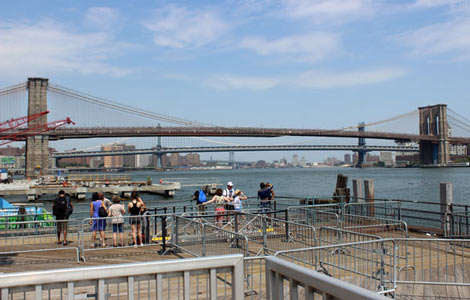
 Macy's 'Fourth' show will include made-in-China fireworks
Macy's 'Fourth' show will include made-in-China fireworks
 Smithsonian Folklife Festival 2014 features China and Kenya
Smithsonian Folklife Festival 2014 features China and Kenya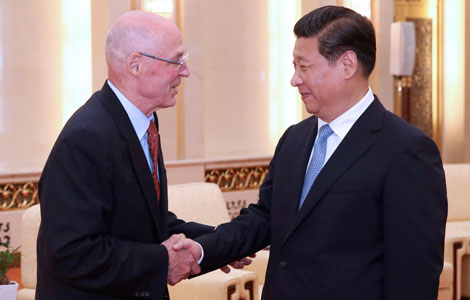
 Xi urges US to view China 'objectively'
Xi urges US to view China 'objectively'
 Xbox One readies for national debut
Xbox One readies for national debut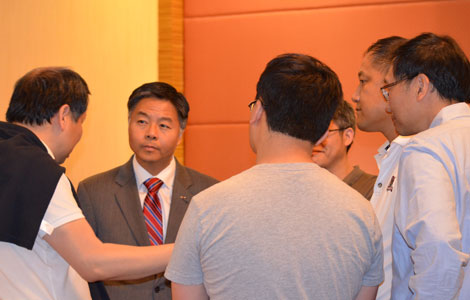
 Political plan
Political plan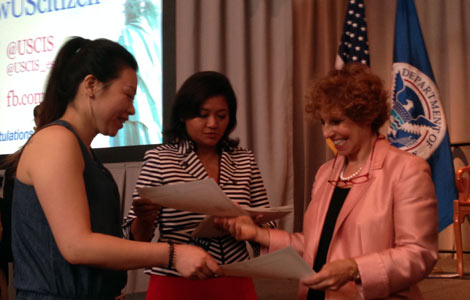
 Naturalization ceremony at New York Public Library
Naturalization ceremony at New York Public Library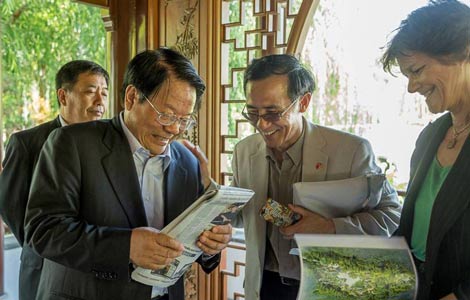
 Bridging the culture gap
Bridging the culture gap
 Consumers from China prefer niche luxury items
Consumers from China prefer niche luxury items
Most Viewed
Editor's Picks

|

|

|

|

|

|
Today's Top News
Private, foreign investment to aid tourism industry
Culture the best basis for ties
Chinese turns to US for milk products
Giving voice to voiceless people
China's presence in RIMPAC 'significant'
US hopes high for S&ED
Restrictions loosened in Shanghai trade zone
Top-level general expelled for graft
US Weekly

|

|
